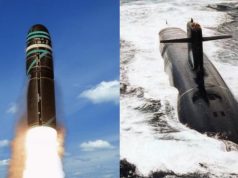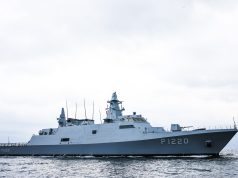Vance Criticism of Romania Ignores Real Threats
Romania has been attacked by the US for canceling its presidential election, but evidence of Kremlin interference mean its courts had no choice.
By Radu Tudor
February 20, 2025
Vice President JD Vance fired a scathing broadside against Romania’s constitutional court on February 14 for ruling the election invalid, claiming the decision, after an ultranationalist pro-Kremlin candidate won the first round of voting, was based on “flimsy suspicions of an intelligence agency and enormous pressure from its continental neighbors.”
“You can believe it’s wrong for Russia to buy social media advertisements to influence your elections, we certainly do” he told the Munich Security Conference. “But if your democracy can be destroyed with a few hundred thousand dollars of digital advertising from a foreign country, then it wasn’t very strong to begin with.”
The statement, just 90 days ahead of a scheduled rerun, sent shockwaves across Romania’s political and security establishment.
“It’s not easy to be Romanian in Munich at this conference,” wrote former NATO Deputy Secretary General Mircea Geoană.
Following the emergence of hard-right nationalist Călin Georgescu as the front-running candidate in November’s first round, Romania’s Supreme Council of National Defense (CSAT) declassified the reports of three intelligence services (not just one, as Vance claimed).
The documents showed how Russia mounted a widespread hybrid war against Romania through viral campaigns on TikTok and Telegram, favoring Georgescu’s strongly anti-Western and pro-Russian message.
Romanian law prohibits foreign interference in elections, prompting the Constitutional Court to cancel the results, after which the vote was rescheduled for May this year. Prosecutors from two separate offices are also investigating other potential breaches during the electoral campaign.
Official messages from Brussels, Paris, Berlin and other Western capitals, including Washington, then under Joe Biden’s presidency, supported the court’s decision.
James Appathurai, NATO’s deputy assistant secretary general for hybrid warfare, revealed some of the mechanisms of the Russian hybrid attack on Romania on February 12. There was no dispute about what had happened.
The pushback against Vance centers on the law and the separation of powers. Sensitive information from three intelligence agencies was declassified before the ruling was made by the Constitutional Court, which is the supreme guardian of the country’s democratic constitution.
Vance was right to note that the court found “Russian disinformation had infected the Romanian elections.” But if elections are “infected” by Russian trolls in a NATO country, should the results be validated regardless of a member states’ laws?
Romania’s experience has sounded alarm bells among the European Union’s political elite and NATO representatives who have warned of similar interference in other member states. Romania failed to prevent a Russian attack on its own and NATO’s soil but was right not to validate elections corrupted by Moscow’s hybrid war.
At a time when Romania’s strategic importance to Europe, NATO and the Western alliance cannot be overstated, Vance’s criticism was off target.
The country hosts 3,000 US troops at the Mihail Kogălniceanu Air Base, near the Black Sea coast, which is now being expanded in a $2.7bn program to make it the largest alliance facility in Europe. It also operates the strategic Aegis Ashore site in Deveselu, part of NATO’s ballistic missile defense (BMD) system.
It’s the West’s first line of defense against any threats coming from the East, providing early warning radar for the entire NATO alliance.
Romania is not only a loyal NATO ally but also a major US strategic partner, having consolidated its relationship with the US across decades of cooperation to address shared priorities including deterrence and defense.
Since Russia’s full-scale invasion of Ukraine, Romania has not only joined Western efforts providing support but has also faced tangible risks associated with the war. Russian drones have encroached its airspace and exploded on Romanian territory on numerous occasions.
Hundreds of thousands of people from the eastern part of the country hear missiles exploding every night, witnessing the war and Russia’s deadly destruction on the other side of the River Danube in real time.
As a nation that has been invaded by Russia on six occasions in the last 200 years, Romanians are rightly worried about their precarious neighborhood and Russia’s interference in their country’s affairs.
They also have the desire, experience and strong commitment to work with the US and Western partners to consolidate their partnerships and defend their shared achievements.
Radu Tudor is a Romanian defense analyst.
Europe’s Edge is CEPA’s online journal covering critical topics on the foreign policy docket across Europe and North America. All opinions are those of the author and do not necessarily represent the position or views of the institutions they represent or the Center for European Policy Analysis.




